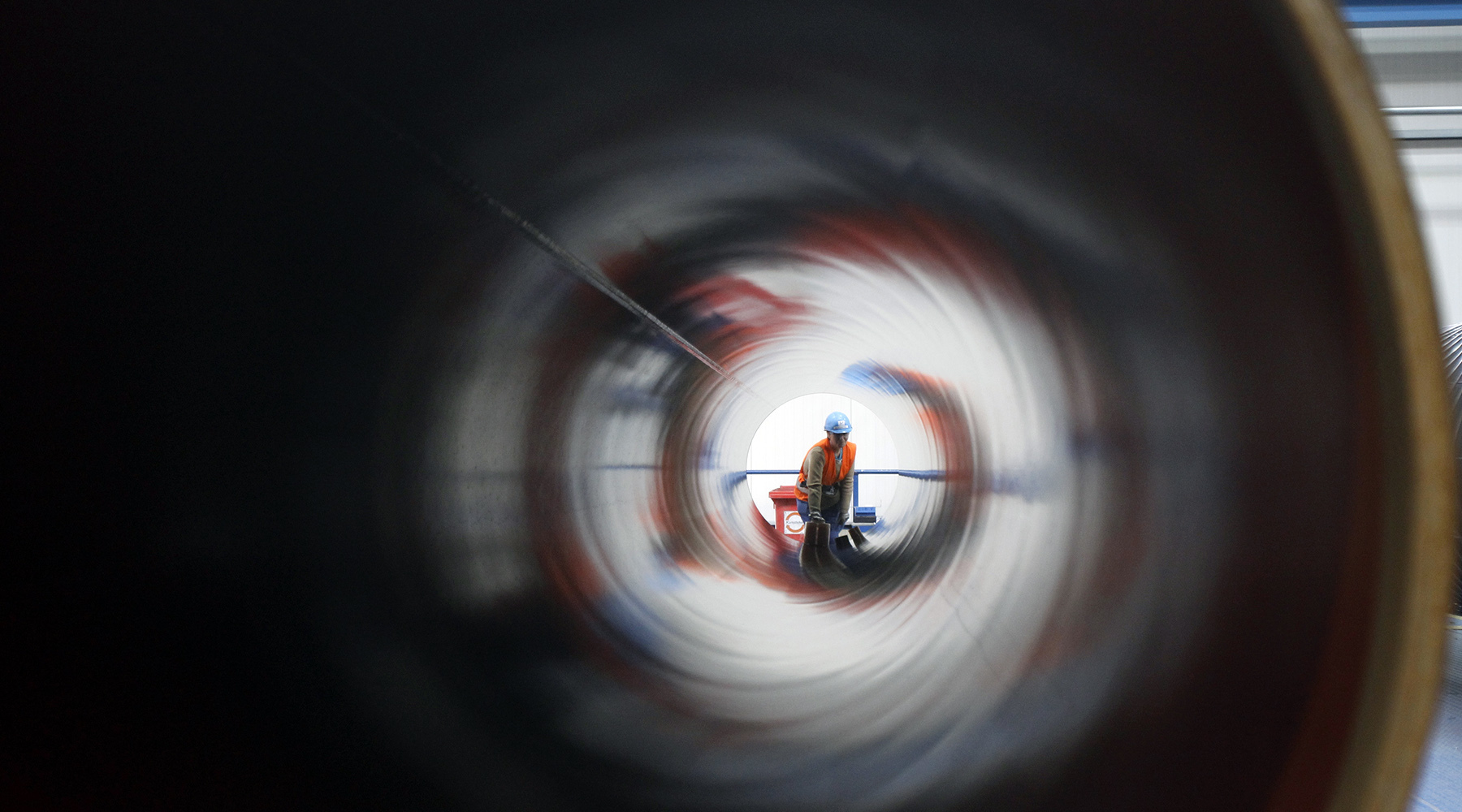The pipe-laying barge Fortuna continued the laying of Nord Stream 2 (SP-2), the project operator Nord Stream 2 AG said.
"The ship" Fortuna "in the construction corridor in Danish waters has begun work on the resumption of construction of the Nord Stream 2 gas pipeline.
The work is proceeding in accordance with the received approvals, ”the message says.
Earlier, the Danish Energy Agency reported that the work also involved: the supply ship "Baltic Researcher" and the multifunctional ship "Murman".
At the same time, on January 19, the US authorities extended sanctions against JV-2. Under the Law on Countering America's Adversaries through Sanctions (CAATSA), the barge Fortuna and the Russian company KBT-Rus, which has owned it since December 2020, were restricted. years, as well as the firm "Rustanker" and the ship "Maxim Gorky".
The press secretary of the Russian President Dmitry Peskov said that Moscow regrets the next illegal restriction against the project, stressing that Washington is exerting "rough pressure" on Nord Stream 2.
SP - 2 is a two strings of a gas pipeline with a total capacity of 55 billion cubic meters per year, which pass through the exclusive economic zones and territorial waters of five countries - Russia, Denmark, Finland, Sweden and Germany.
Igor Yushkov, an expert at the Financial University under the Government of Russia, a leading analyst at the National Energy Security Fund, noted that Fortuna had begun laying pipes in the Danish water area on the border with Germany.
“Because of the sanctions, Fortuna had no problems with insurance, which means that it will have all problems after the completion of construction, but it is important to complete the pipeline itself.
Now we are waiting for Fortuna to work in shallow water, at the beginning of February the Akademik Chersky should come, several more supply vessels are waiting for him in the German water area, the expert said in an interview with RT.
- There are about 120 km left on both lines, the work will take several months, then another month and a half, the gas pipeline will be put into operation.
The main thing is that there are no restrictions on the part of European countries. "
Reuters
© Tobias Schwarz
Washington initiated sanctions pressure on Russian projects at the end of 2019, when the then US President Donald Trump signed the country's defense budget for the next fiscal year, which included restrictive measures against the Nord Stream 2 and Turkish Stream pipelines ...
In October 2020, the US State Department, within the framework of the Protecting Europe's Energy Security Act (PEESA), announced that from now on, not only those companies that are directly involved in laying the pipeline, but also those that provide services to the project and supply goods.
After that, the Norwegian company Det Norske Veritas - Germanischer Lloyd (DNV GL) ceased work, which carried out an audit of construction activities for compliance with various standards.
Meanwhile, in December 2020, in the exclusive economic zone of the Federal Republic of Germany, the Fortuna ship laid a 2.6 km section.
Already on January 1, the US Senate adopted the National Defense Authorization Act (NDAA) for the 2021 fiscal year (started on October 1 of the calendar 2020), which provides for further measures to tighten restrictions on the gas transportation project.
According to the document, restrictions are envisaged in relation to companies providing insurance and underwriting services to the project.
(underwriting - guarantees of receiving payments in case of financial losses).
This decision by the United States led to the fact that the Danish engineering company Rambøll, the Swiss company Zurich Insurance Group and the German concern Bilfinger SE withdrew from the construction process.
At the same time, German Chancellor Angela Merkel called the US extraterritorial sanctions against Nord Stream 2 inappropriate.
At the same time, the deputies of the European Parliament on January 21, by a majority vote, adopted a resolution in connection with the arrest in Russia of Alexei Navalny.
The authors of the document demanded from the leadership of the European Union “to immediately prevent the completion of the JV - 2 project, as well as to“ sensibly strengthen ”restrictive measures against Russia.
However, as noted by the head of the Hungarian Foreign Ministry, Peter Siyjarto, the EP resolution will not have any impact on relations between Russia and European countries, including Hungary.
“The fact is that all such conversations in most cases are hypocrisy.
Take a closer look and see: many countries that criticize Russia hardest of all have the most profitable business here, "RBC quotes him.
Let us remind you that the documents of the European Parliament are of an exclusively recommendatory nature and are not binding on the bodies of the European Union.
The fact that the implementation of the Nord Stream 2 gas pipeline should not depend on the situation around Alexei Navalny was also announced in Germany.
In particular, the head of the Christian Democratic Union (CDU) Armin Laschet and the coordinator of the German government for affairs with Russia Johann Zaathoff spoke about this.

